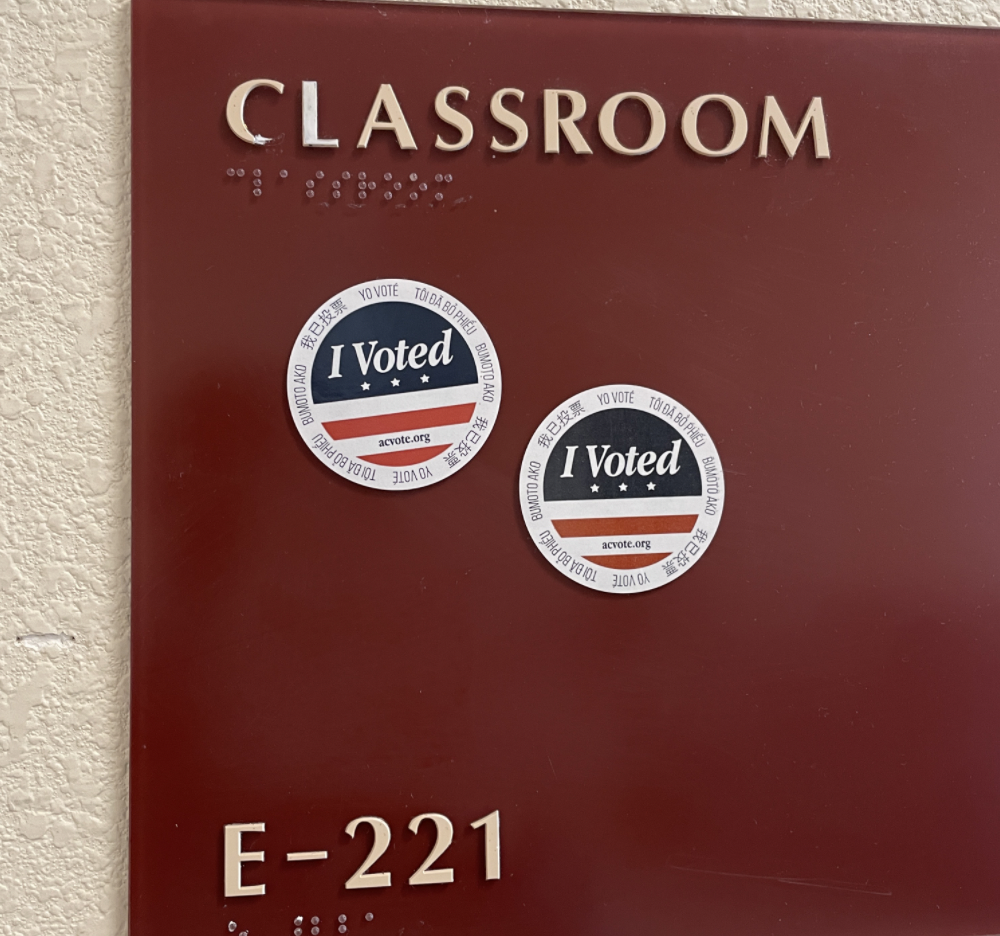Image provided by author.
Voting Rights Bill failure
Recently President Biden spoke out about changing the Senate’s filibuster rules to allow a voting rights bill to pass (Freedom to Vote Act). He spoke in Atlanta on January 10th about how the Voting Rights Act has been weakened by the United States Supreme Court. “Recognizing the fundamental right to vote is the right from which all other rights flow,” said Biden. This entire plan went straight to failure and has been heavily criticized by the public, including those who have supported Biden’s presidency. Two Democratic senators, Kyrsten Sinema of Arizona and Joe Manchin of West Virginia, along with all of the Senate Republicans, could not be persuaded to eliminate the filibuster to pass the bill. The Voting Rights Bill would have consisted of Election Day being a federal holiday, all voters having access to mail-in ballots, and would have allowed the Justice Department to police voter suppression. This bill was considered to be a response critiquing the new restrictive voting laws in 19 states, the majority of which are led by the GOP.
California Voting Laws
But, what does voting look like in our home state? As California residents it’s important to discuss the recent changes that have been put into effect. One of the most discussed bills (Assembly Bill 37) is that every voter will be mailed a ballot, which extends the requirements to mail a ballot to every registered voter to all elections. The deadline for voting has been changed to 7 days, instead of the original 3 days post election day. Now, because of technology, voting ballots can be processed 29 days before the election. Critics argue that inactive voters and unavailable home addresses means that registered voters won’t receive them, limiting voters from access to a ballot.
During elections, people are often accused of voter fraud through “ballot harvesting.” This practice was created by organizations who take votes from absentee voters (injured, military, those on vacation, and business travelers), and is used to increase the number of votes. This has been efficient as fewer votes aren’t missed. It has sparked controversy as many see it as openly encouraging voter fraud. California is one of the few states that accepts this method of collecting ballots.
The election administration provides two choices: voting by mail and in person elections. If voting by mail is chosen, it’s required to send every voter a ballot, ballot tracking tech, and drop box locations. For in person elections, it’s required to rent voting locations, recruit workers, and stock up on protective gear (masks, sanitizer, cleaning equipment) for the pandemic. Most of the funding would need to be raised by those who wish to participate in the voting process, since counties are not reimbursed by the state.
There are three common ways to vote: the official 24 hour ballot drop boxes, becoming a permanent vote by mail voter, and ranked choice voting. The official ballot drop boxes can be found in local areas, and are open until 8 p.m. on Election Day. These are efficient if you’re busy and you can’t find time to wait in poll lines and vote in person. Becoming a permanent vote by mail voter means you will receive a ballot in the mail before each election, allowing you to have more time to carefully evaluate the current issues and candidates. Ranked choice voting is seen as one of the easiest ways to vote, but it is limited to Berkeley, Oakland, and San Leandro residents. It’s primarily used for local city elections, electing mayors, members of the city council, city attorneys, and school directors.
Since many seniors will have the opportunity to vote for the first time, it’s interesting to understand their perspectives on voting and whether they plan to vote or not. Washington senior Divyam Sengar shares his thoughts on its importance. “Voting is important to a part of me since I recognize it is a necessary process to improve our form of government,” he says. “I believe that there are several issues in our current government (As is seen in policies regarding Climate Change, Education, Fiscal policies, etc) and often, voting can help remedy these issues by establishing that the people demand certain changes.” If policies are not voted on, then the result of the votes will be unequal and demands won’t be changed. And though he recognizes it’s important, he still questions whether or not he’ll submit a ballot anytime soon. “I am relatively unsure about whether I plan on voting…I think I would vote if we lived in an ideal world, but perhaps because American society is lagging behind, I currently don’t have a conviction to vote,” he says.
One of the ways to improve the spread of voting, Sengar suggests, is “for the voters to be properly educated on the political world. This means that I would want some manner of free class or education that would ensure that every voter recognizes the ongoings of the political world to be instituted.” Without proper education, people are less likely to understand the importance of elections and how they operate. Voting can give the people an opportunity to express their viewpoints and choose what changes they want to be made in the future.
Jayla Farrington is a junior at Washington High School. She was born and raised in Charlotte, North Carolina, but moved to California in early 2016. This will be her first year with the Hatchet. Jayla plans on covering controversial topics such as mental health, entertainment, and racial discrimination. She enjoys anything to do with art, traveling, and music. Her future plans involve becoming a psychiatrist and therapist because mental health is a really important topic to her.

